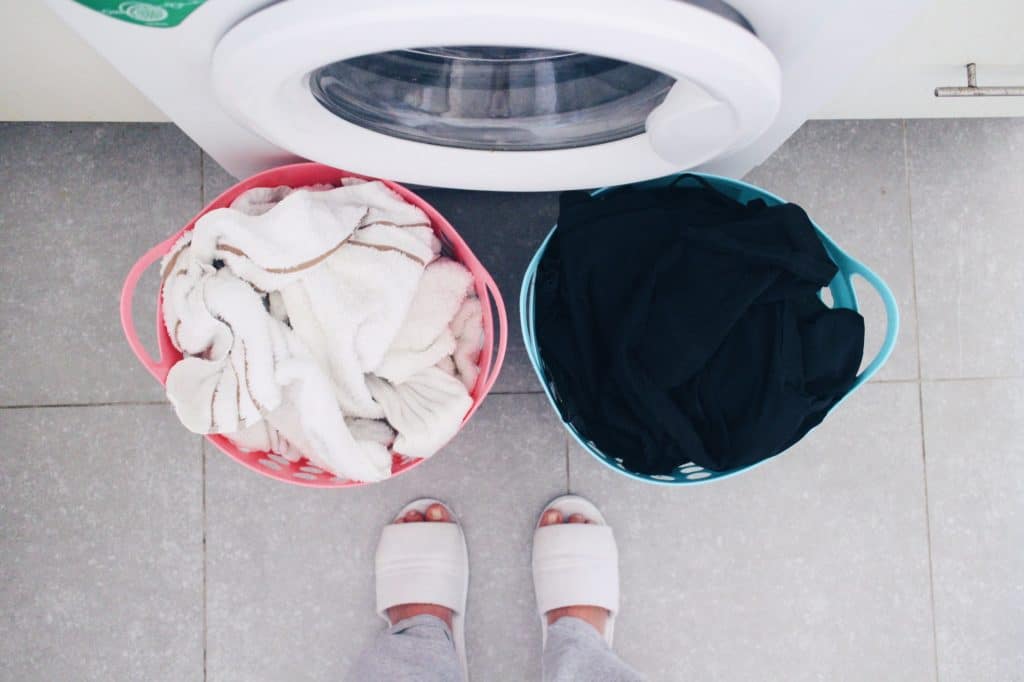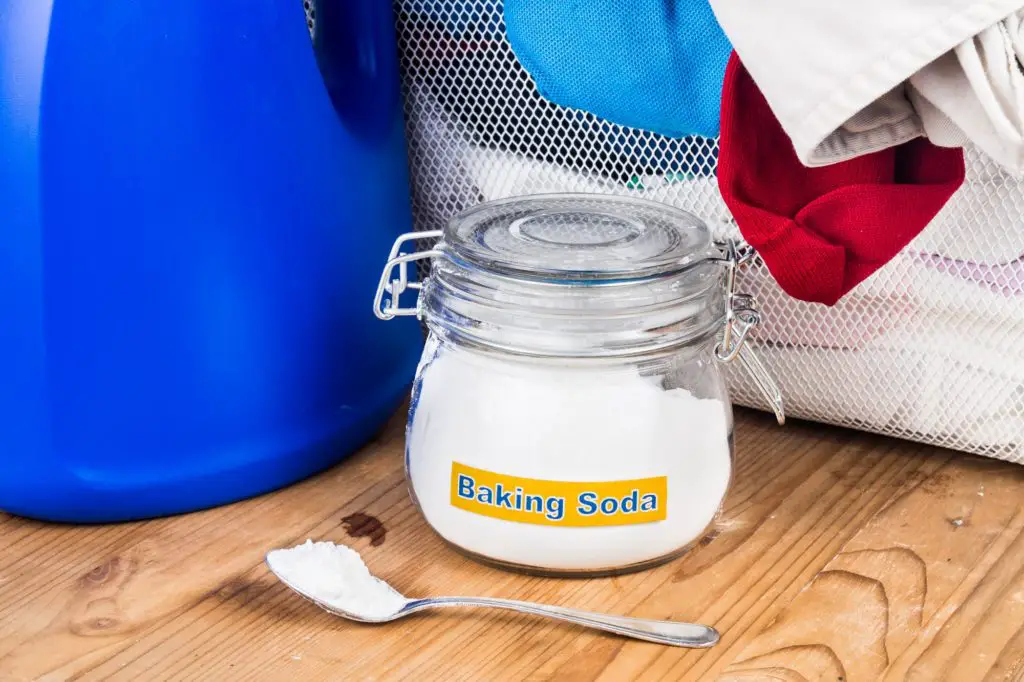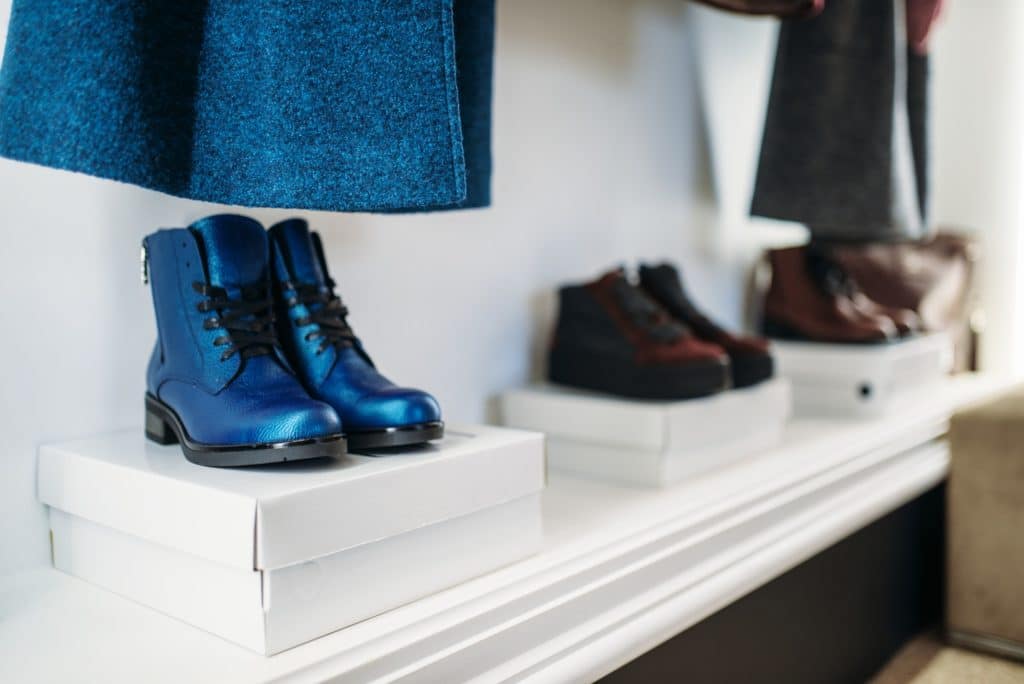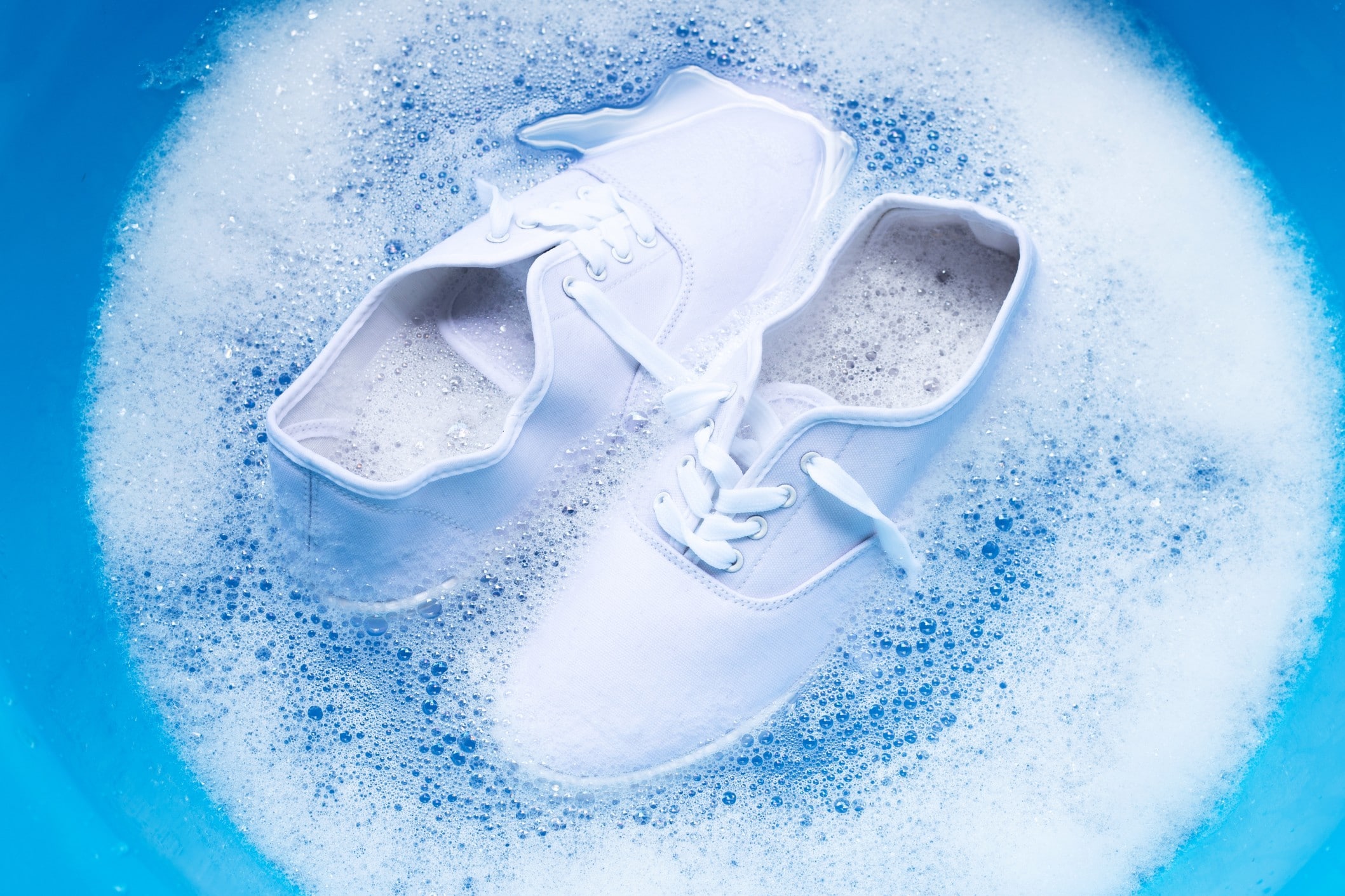Everyone has experienced it: you get home after a long day and kick off your shoes, only to be hit with a terrible wave of foot odor. You can easily throw your socks in the wash, and jump in the shower to get the smell off of your feet, but shoes tend to get neglected. The next day, they have dried out and any smell seems to be gone. However, as time goes on, the smell seems to be worse every night.
If you want to get the most wear out of your shoes, they need some extra care. Odor removal is a necessary and important part of keeping your shoes in the best shape possible. Luckily, it is actually quite easy to improve the smell of your shoes.
Shoe odor can be removed Instantly by using household products such as baking soda or vinegar, store-bought odor removal products, or in some cases your washing machine are all great options for keeping your shoes smelling fresh.
Knowing the true causes of most foot and shoe odor, as well as how to properly utilize each product and method of odor removal will give your shoes a new chance at life and eliminate embarrassing smells from your day.
Causes of Shoe Odor
In order to effectively reduce the odor in footwear, you must understand what causes the odor in the first place.
According to Correlating the Perception of Foot Odor and the Amount of Odorous Chemicals Present in Footwear Materials, microbial metabolism is the main culprit. Fluid on the skin of the foot is broken down to amino acids and also short-chain fatty acids by bacteria, and what remains ends up in the air. This is what we perceive as foot odor.
These odors are especially noticeable in many closed-toed shoes because they provide a fantastic environment for bacteria to live, and microbial metabolism to occur.
In the study Foot Odor Due to Microbial Metabolism and Its Control, it was determined that the bacteria species bacillus subtilis was present on the feet of people who experienced especially odorous feet.
Many of the bacteria found in studies to be correlated with foot odor and shoe odor are naturally occurring and not necessarily an indication of sub-par hygiene practices.
However, while we know that microbial metabolism caused foot odor is a process that occurs with every person, it occurs much more rampantly under certain circumstances:
- When you sweat more on average
- When feet are enclosed in a shoe for an extended period
- When certain socks are worn
- If regular hygiene practices are not followed
- When non-breathable shoes are worn
An article on Foot Odor Microbes reviewed by microbiologists at Kenyon College, blames non-breathable footwear, wearing the same shoes every day, and wearing nylon or polyester socks among other things for a higher rate of foot odor.
How to Machine Wash Your Shoes

When you have a shirt or a pair of pants that develop an odor, your first thought is probably to throw them in the washing machine. But shoes are another story. You might be worried that if you machine wash a pair of sneakers they will fall apart.
While it must be taken on a case-by-case basis, some shoes are machine washable as long as you take the appropriate precautions.
| Shoe Type | Precautions | Don’t Machine Wash |
| Sneakers | Remove laces Don’t wash them alone Liquid detergent only | If they are irreplaceable Leather or suede |
| Slippers | Use a garment bag | If they are falling apart Made of delicate material |
Removing the laces from sneakers and washing them separately or in a garment bag will keep them from tangling up. Make sure to throw something else in with your sneakers to balance out the machine and take the brunt off of the shoes, like towels.
If your sneakers are collector’s items or in other ways special to you, you might want to avoid putting them in the wash just in case something goes wrong. However, for most sneakers, except those manufactured with leather or suede, an occasional wash will definitely help keep odors under control.
There are many types of slippers, so make sure you double check, but most smelly slippers can also typically be washed in the machine in a garment bag, as long as they are not falling apart or made of materials that should be hand washed.
It is important to note that while some shoes can be machine washed, none of them can be dried in a dryer. Make sure to air dry all of your shoes to avoid ruining them.
Alternate Methods of Odor Removal

If your shoes are not machine washable, if you do not have time to let them air dry, or if you are looking for a treatment that will help curb odor in between washings, there are a few options available to you.
- Baking soda
- Vinegar
- Odor removal products
Using Baking Soda
- Sprinkle baking soda directly inside the shoe, using as much as you feel is necessary
- Let the baking soda sit in your shoe overnight, and dump it out the next morning
- If you do not want to put the baking soda directly into your shoe, it would also work to put the baking soda in a sock or a cloth bag and letting the bag sit in your shoe overnight
- Be aware that baking soda will dry things out, so avoid using this method on leather shoes
Using Vinegar
If your shoes are machine washable and extra smelly, you can use diluted white vinegar (or a combination of vinegar and baking soda) to treat the shoe before you toss it in the machine.
- Soak your athletic shoes (not leather, suede, or any type of dress shoes) in a solution of white vinegar and water before washing.
- You can also use a combination of detergent and 1 cup white vinegar directly in the washing machine
Odor Removal Products
There are many odor removal products on the market that come in various forms from putty to sprays. To make sure you are getting a product that will work to remove odor and not just mask the smell, look for the following ingredients:
- Activated charcoal
- Natural enzymes
We know that the cause of odor in shoes is largely due to the presence of odor-causing bacteria, therefore to truly help with the stink, you need to work on removing the bacteria itself.
According to an article in the Chicago Tribune, enzymes work by directly breaking down the odor-causing bacteria.
Activated charcoal absorbs the odors, and while it does not break down the bacteria itself, it effectively removes the odor molecules.
Joe Schwarcz, PhD confirms that baking soda works to neutralize odors in an article for McGill University. This is expanded upon in an article in The Washington Post, that explains that baking soda works by neutralizing the smelly acidic compounds they come into contact with.
Vinegar works by bonding with and trapping the odor-causing molecules. While vinegar doesn’t always smell appealing, the vinegar smell will soon disappear and it is one of the more natural cleaners and odor eliminators available.
How to Prevent Odor Before it Starts

Now that your shoes are clean and deodorized, is there anything you can do differently to keep them smelling fresh, or at least fresh for longer? Some tips to prevent odor buildup include:
- Wear cotton or wool socks
- Practice good hygiene
- Switch shoes regularly
- Purchase odor-resistant shoes
Wearing socks that allow for breathability such as wool or cotton, in addition to breathable shoes, will help deter bacteria growth that thrives in dark airless spaces.
Washing your feet regularly, while not completely preventative, will help to keep bacteria growth from getting out of control. Use an anti-bacterial soap to get the best results.
If you wear the same shoes every day, they don’t get the same chance to dry out as when you rotate your daily shoes. Reduce the rate of bacteria growth by not wearing the same pair of shoes each day, including rotating your workout shoes. This also gives you more of an opportunity to wash and deodorize your shoes as necessary.
Finally, some shoes have odor-resistant or anti-microbial coatings or are made with materials that provide the same qualities. While you may have known there are shower shoes that provide this extra protection, more and more everyday shoes are also utilizing these features
Similarly, certain natural fibers are also considered odor-resistant, and can also assist you in curbing any foot odor. Wool especially is known for its naturally odor-resistant qualities. In the study Odor Intensity in Apparel Fabrics and the Link With Bacterial Populations, it was determined that when wearing natural textiles including wool less body odor occurred than when wearing synthetic textiles.
Regularly cleaning and deodorizing your shoes (and your feet) will assist with keeping your shoe odor under control. While there are things you can do to keep the odor-causing bacteria from accumulating quickly in the first place, you will probably need to remove odor from your shoes at some point in their lifetime. Luckily, it is possible to simply and effectively deodorize your shoes at any time even with basic household items.

Austin is the author of loveatfirstfit.com and a personal trainer with extensive knowledge in nutrition. Austin is passionate about helping others to find a suitable healthy lifestyle and feel good about themselves. Austin’s goal is to help people push their limits and achieve their physical performance.

